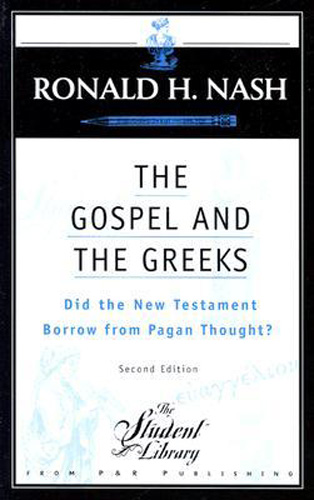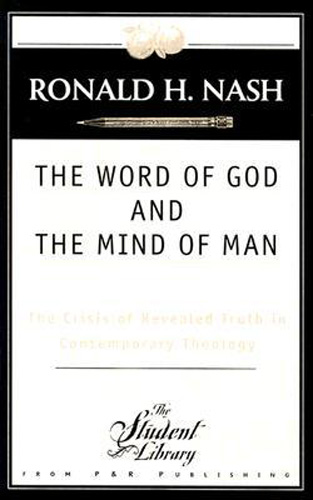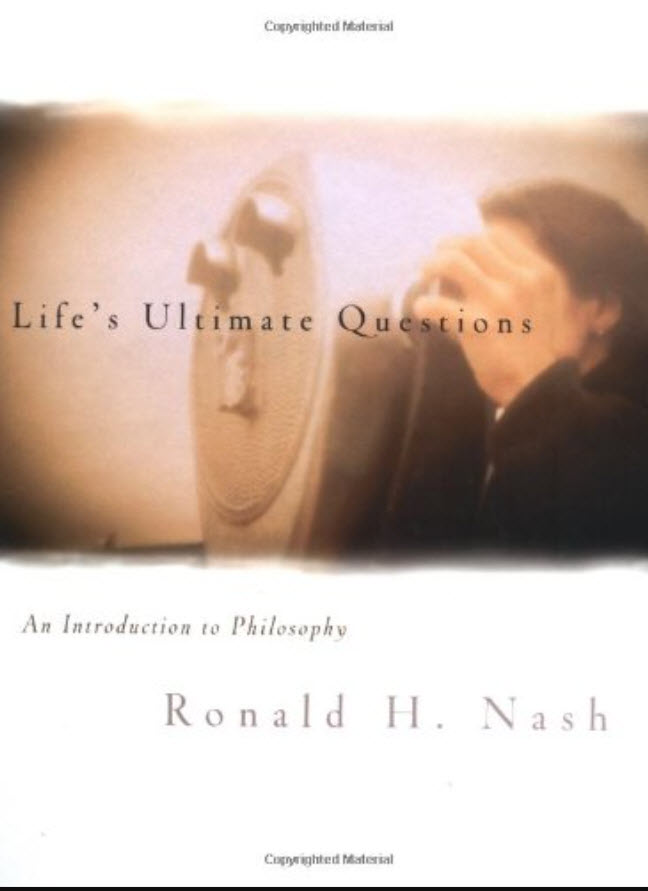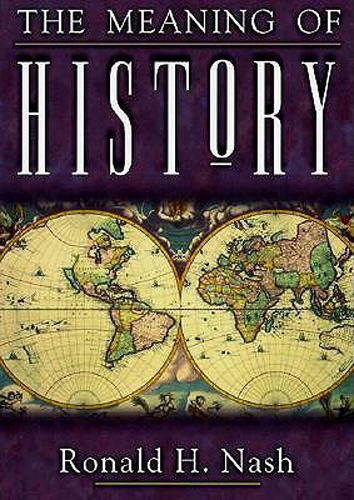History of Philosophy and Christian Thought - Lesson 27
Augustine and Faith
Augustine wrote to refute some heresies of the day by focusing on the concepts of faith and reason.

Augustine and Faith
Augustinian Philosophy
Part 3
III. Faith and Reason
A. Groups of Writings
1. Anti-Manichean
2. Anti-Pelagian
3. Anti-Donatist
B. Faith and Reason
1. Definition of Reason
2. Definition of Faith
C. "I believe in order that I may understand."
D. Working Together
1. Faith is first in time.
2. Reason is first in importance.
Introduction
0% Complete- 0% Complete
Thales and Anaximander were two philosophers in the sixth century BC that lived in Miletus.
0% Complete - 0% Complete
Heraclitus and Pythagoras lived into the 5th century BC.
0% Complete - 0% Complete
Any worldview addresses the subjects of God, ultimate reality, human knowledge, ethics and human persons.
0% Complete - 0% Complete
Fundamental beliefs of a naturalistic worldview is that nothing exists outside the physical universe and that all things evolved.
0% Complete - 0% Complete
Plato was a student of Socrates and lived into the fourth century BC. He opposed hedonism, empiricism, relativism, materialism, atheism and naturalism.
0% Complete - 0% Complete
Plato described the universe as having three levels: the world of particulars, the world of forms, and the form of the good.
0% Complete - 0% Complete
Plato's view of the universe was dualistic.
0% Complete - 0% Complete
One of Plato's fundamental arguments is that the human soul is immortal.
0% Complete - 0% Complete
Evaluation of Plato's arguments and comparison of Plato's philosophy with biblical theology.
0% Complete - 0% Complete
Empiricism teaches that all human knowledge arises from sense experience. Rationalism teaches that some human knowledge does not arise from sense. experience
0% Complete - 0% Complete
Aristotle was a student of Plato and lived in the fourth century BC.
0% Complete - 0% Complete
Aristotle rejected Plato's doctrine of two worlds.
0% Complete - 0% Complete
Discussion of Aristotelian philosophy as it relates to the incarnation.
0% Complete - 0% Complete
Aristotle's philosophy as it relates to attributes of God and fundamental assumptions about psychology.
0% Complete - 0% Complete
Aristotle made a distinction between passive intellect and active intellect.
0% Complete - 0% Complete
Discussion of the strengths and weaknesses of the law of non-contradiction.
0% Complete - 0% Complete
Discussion of the nature and substance of matter.
0% Complete - 0% Complete
Hellenistic philosophy was an approach that was popular from the fourth century BC to the fifth century AD.
0% Complete - 0% Complete
Stoics were determinists who believed in living according to nature.
0% Complete - 0% Complete
Hedonism emphasized pleasure as the greatest good. "Eat, drink and be merry for tomorrow we might be dead."
0% Complete - 0% Complete
Philo's philosophy was based on a synthesis of Stoicism and Platonism.
0% Complete - 0% Complete
Implicit "Logos" Christianity is an underlying theme in the book of Hebrews.
0% Complete - 0% Complete
Plotinus lived in the third century AD and is considered the founder of Neoplatonism.
0% Complete - 0% Complete
Augustine is a Latin church father, is considered by many to be one of the most important figures in the development of Western Christianity.
0% Complete - 0% Complete
Augustine wrote Confessions as an autobiographical work to record his experience as a sinful youth and his experience becoming a follower of Christ.
0% Complete - 0% Complete
Augustine wrote to refute some heresies of the day by focusing on the concepts of faith and reason.
0% Complete - 0% Complete
Augustine writes about the problem of evil and describes evil as the absence of good.
0% Complete - 0% Complete
Augustine writes to refute Pelagianism by focusing on the biblical teaching about sin.
0% Complete - 0% Complete
Augustine writes to refute Donatism.
0% Complete - 0% Complete
The fundamental idea of skepticism is that no one can know anything. Augustine this statement contradicts itself because the skeptic is claiming that you can know that you can't know anything.
0% Complete - 0% Complete
When Augustine wrote "The City of God," he had a linear view of history.
0% Complete - 0% Complete
In Augustine's theory of knowledge, he says that eternal reason and human reason are two different levels of reason.
0% Complete - 0% Complete
Augustine was personally convinced of the importance of divine illumination.
0% Complete - 0% Complete
The intellectual background of Thomas Aquinas was influenced by the discovery of ancient manuscripts, the rise of universities, the rise of religious brotherhoods and the rise of Muslim philosophy.
0% Complete - 0% Complete
Aquinas describes faith as whatever a human can know through special revelation, and reason as whatever a human can know outside of special revelation.
0% Complete - 0% Complete
Aquinas attempts to prove God's existence.
0% Complete Aquinas describes four kinds of law as eternal, divine, natural and positive.
0% Complete- 0% Complete
The rationalists and empiricists set the stage for Kant and other philosophers of the modern era.
0% Complete - 0% Complete
Kant argued that moral requirements are based on a standard of rationality he dubbed the “Categorical Imperative."
0% Complete - 0% Complete
Kants two worlds are the phenomenal world and the noumenal world.
0% Complete - 0% Complete
Discussion of criticisms and questions about Kant's ideas.
0% Complete - 0% Complete
Similarities between Kant's ideas and postmodernism.
0% Complete - 0% Complete
The dialectic is a central idea in Hegel's philosophy.
0% Complete - 0% Complete
Ideally, Marxism begins with class struggle, then revolution, dictatorship of the proletariat, withering away of the state, and a utopian classless society.
0% Complete - 0% Complete
Discussion of four faces of Marxism.
0% Complete - 0% Complete
Nietzsche proclaimed that, "God is dead." His cure was to live life knowing there is no ultimate meaning. Kierkegaard emphasized a worldview based on true faith.
0% Complete
In this class, you will explore the rich history of philosophy and its relationship with Christian thought. The course begins with an introduction to the definition and importance of philosophy in Christian theology. You will then delve into the evolution of philosophical thought from the Pre-Socratic era, through the Classical Greek philosophers, and into the Hellenistic period. As you progress, you will discover how early Christian thought emerged and developed during the Patristic period, with a special focus on Augustine. The class continues with an examination of medieval Christian thinkers, such as Anselm and Thomas Aquinas, and concludes with an analysis of modern philosophers like Descartes, Kant, and Kierkegaard, and their influence on contemporary Christian thought.
Two other books that are recommended reading for this class are Confessions by Augustine and Phaedo by Plato.
Recommended Books
The Gospel and the Greeks: Did the New Testament Borrow from Pagan Thought?
Examines contemporary claims for Christian dependence on Hellenistic philosophy, Greco-Roman mystery religions, and Gnosticism. He finds the case for dependence in the...

The Word of God and the Mind of Man
The last two centuries of Christian theology are the record of an evolving attack on the role of knowledge in the Christian faith. The purpose of this book is to challenge...

Life's Ultimate Questions: An Introduction to Philosophy
Life's Ultimate Questions is unique among introductory philosophy textbooks. By synthesizing three distinct approaches

The Meaning of History
The Meaning of History is a concise look at the meaning of the history of the world from the viewpoints of major historians and philosophers. By examining the individual...

Dr. Ronald Nash
History of Philosophy and Christian Thought
th620-27
Augustine and Faith
Lesson Transcript
Let me approach a big body of Augustine's material in terms of the three classifications of most of his writings. There are the anti Manichean writings, and Manichean can be spelled in several ways right in here depends on how all the sources and as long as you get the AM and the A in the end, right, I probably won't do anything. Then there were the anti Palladian writings and then there were the anti Dönitz writings. There's very little philosophy in the anti-Donald Tist writings. It's primarily theology and it's theology that relates largely to ecclesiology the doctrine of the church. If there is such a thing as a Roman Catholic Augustine, this is where you're going to find him in the A.D. Artist writings. If there is such a thing as a Calvinist stick, a Augustan, a Protestant Augustan, a pre Reformation Augustan. You're going to find him in the anti Palladian writings. Listen to me. The major problem with Roman Catholic teaching is it's surrender to plagiarism. Now, Roman Catholics tend to they try to avoid this by saying, well, we're not plagiarize, we're semi plagiarize. Yeah, that's like being half pregnant. Do you understand? There's no such thing as being halfway pregnant. Well, you're either a Palladian or you're not. Now, let me also say here that a lot of Armenians are trying to get out of try to make moves that are semi Palladian. So here is the reformed Augustan right up here. This is the Calvinist. And you understand Augustine is really a precursor of Calvin on many issues. This is the Pauline Augustine right here. This is the guy who believes in sovereign grace.
[00:02:25] Human beings cannot save themselves. But unfortunately, this would be the Catholic Augustine here. Now, let's start a little bit with the anti Manichean writings. There are two major ideas that appear in the anti Manichean writings in the time that we have. Let's look at Augustine's view of faith and reason. I've already told you that Augustine, under his under the influence of the man, Akins had hated faith. He would go home to the cast and he'd say to his mother, Mother, I love you dearly, but you keep begging me to believe in Jesus. You keep begging me to exercise faith. Mother faith is something for little children in Sunday school and old women like you. With all due respect, Mother, I love you. But leave me alone. I become a great Manichean here. And faith has no place in my life. Boom. Later on, of course, Augustine would realize how stupid that was. Because by the time he had become fully committed to Manichean ism, what he was doing was exercising faith in the ideas and the teachings of Manicheism. I mean, that's what he was doing. Augustine became perhaps the greatest champion of the proper relationship between faith and reason, perhaps in the entire church, in the whole history of Christianity. What he did was he came up with a new understanding of the nature of faith. He defined these terms, and so he defined reason as anything that a human being comes to know for himself or for herself. For example, I'm holding a white and black crayon in my hand. How do you know that? You know that by yourself. It's your own experience. Please notice that the word reason in this sense has close connections with sense experience. Anything you come to know for yourself is reason.
[00:04:40] So in years to come, you'll say, Well, you know, Nash parted his hair in the middle. How do you know that answer? I was there. I was there on the day when he spit in his hands and combed his hair. Okay. Parting it in the middle. You come to know that by reason. But how does your friend or your child or your grandchild know that I parted through you? Your testimony. That's faith. So reason is anything you come to know by yourself. I'm not going to write that on the board. Faith is whatever you come. To know based upon the authority or the testimony of someone else or something else. How do you know? American history by faith. You weren't there when? When the British. So when surrendered at Yorktown, you believe the testimony of newspaper accounts, the writings and history books and so on. How do you know that Abraham Lincoln was assassinated by faith? How do you know that? There is no land service at the North Pole. By faith, you accept the testimony of an encyclopedia or a book. Okay. Now, once August and recognized what faith really was, then he came to realize that faith is not just an operation of little children in Sunday school. Faith turns out to be an inseparable activity in every human pursuit of knowledge. Everybody must exercise faith. And so Augustine expressed that in a famous Latin expression credo put in telegram. I believe in order that I may understand. Here's the point. Unless you first believe something, you can't know anything unless you first exercise faith. You can't know anything. Human knowledge begins always in an act of faith, whether it's science or history or religion. Faith is inseparable from human knowledge. Now, someone has once given this very good analogy, you could say that Augustine's position presumes.
[00:07:18] Well, assumes the following example. Consider a pair of scissors. All right. And I'm going to use my fingers as the clippers. And suppose I have a pair of scissors and I'm cutting this piece of paper. Which. Which shear or which pair? Which thing of the scissors does the cutting? Answer. They both must work together. And so Augustine says, no one can know anything unless both faith and reason. Work together is a total repudiation of a manichean error. And I'm butcher. Chadwick doesn't really talk about that in his footnotes. So instead of faith being an enemy of intellectual matters, it turns to be an indispensable part. And everybody uses faith, and they must use faith. And that's the start of any proper approach to the relationship between faith and faith and reason, faith and philosophy or something else. Okay. So that's a I think if you want to if in the Augustinian anti Manichean writings, there's a work called on the usefulness of believing that would probably be one of the better sources in which he defends faith against the Manichean charge. Augustine said faith comes first in time, reason comes first in importance. Let me comment on these two sentences. All human knowledge begins with things that we accept by faith. Credo What intelligent. I believe in order that I may understand you. You can't know anything until you first accept something by faith. That's the Augustinian view. That is also basic to presupposition Islam. You can't know anything unless you first accept something by faith. I told you also that faith is in direct knowledge. Faith is present whenever your understanding of something depends upon information that you receive from other sources that you take on the testimony of other sources. So everything that you know about history is really a consequence of faith.
[00:10:17] Now, I don't know about you, but I wasn't present when George Washington threw a coin across the Potomac River, just between you and me. No one was present when that happened. Not even George Washington. Okay. That didn't happen. I wasn't present when George Washington chopped down the cherry tree. My guess is he probably did that. But how do we know anything from history? Answer We accept it on faith. And why do we accept things on which we believe the author has credibility? Now, let me give you an example of an author who on some subjects has no credibility. All right. That's W.T. Jones, the guy that I quote in chapter two in volume one of his history of philosophy, including the material he gives you on Atomism. He's got credibility. My guess is he probably did. He probably did his doctoral dissertation on ancient atomism. That would be a guess. But in volume two, when W.T. Jones starts writing about the Christian faith, don't believe a thing, he says. All right. He doesn't know what he's talking about. He's out to lunch. And I'm saying that for the tape. All right. He's out to lunch because all he does is repeat a bunch of canards that he picked up in his lifetime. And he doesn't. He doesn't. He doesn't. He doesn't understand that all of his misconceptions about the Christian faith were refuted by the year 1930. That's 70 years ago. He utters claims like Christianity was an early mystery religion. No, it wasn't. No, it was not that we're talking first century Christianity. It was not a mystery religion that the early Christians borrowed from Plato and Philo and all of that stuff. That is basically refuted in your book, The Gospel in the Greeks.
[00:12:24] Okay. And then, as I told you, he comes up with this same psychological nonsense about Saint Augustine because he worried for years that he had stolen a few pairs. When the truth is, W.T. Jones is very shallow. He doesn't understand the nature of sin, and he doesn't understand that Augustine recognized that what was really horrible about that deed he committed as a teenager was that he stole for the sake of stealing. He just laughed. And how many human beings do something not because they necessarily want X or Y or Z, but because they love the thrill of doing it. Okay, so faith comes first in time. Reason comes first in importance. Augustine says you don't believe everything that people tell you. What you do is you examine your authorities, you test your sources. I mean, if you're reading a history of American slavery that's written by a member of the Ku Klux Klan, you don't you don't give a person like that a whole lot of credibility. Now, one more thing here. This is an example of what Augustine is getting at. Suppose there's a practical joker on campus, and I have a feeling that he might be a member of this class. Anyway, he walks in here and he points out one of you. All right, he's pointing to you and he says, I. We just got a call from the police department and your house or your apartment is on fire and you're supposed to you're supposed to go home right away. But this guy is known to be a practical joker. And my guess is that he if he said that to you and you know that his word is not to be trusted, you're just going to yawn and go back to sleep.
[00:14:34] Okay. But now suppose. Well, let me you know, many of you now are new students and so you don't remember Luter Whitlock. But let me tell you, Dr. Whitlock, our president, until late August, was the model of sobriety. Okay. And you could trust him. So if he comes in and he were to say to you, Hey, I've got bad news, your house or your apartment is on fire, would you move then? You bet your life. You know, if Looter Whitlock did that to me, I'd. I'd head home. So we trust our authorities. We test our authorities, And if we find that somebody is unreliable, remember the story of the boy who cried wolf? Well, look it up. You're not going to trust the word of someone who is not credible or reliable. So Augustine is right on target here. So for Augustine, faith and reason are like the two blades of a pair of scissors. One is faith, one is reason which one does the cutting. And the answer is you can't get any cutting done unless they're both working together. Every act of human knowledge is a is a is a is a product of faith and reason working together. Okay.